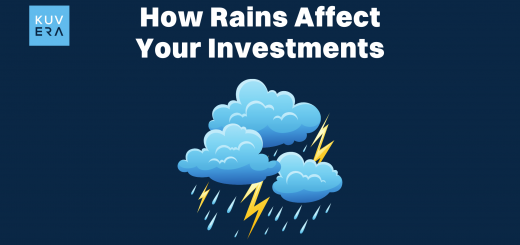In the ever-evolving world of finance, alternative investments have emerged as a crucial component, offering diversity and potential for high returns beyond the traditional markets of stocks and bonds. This blog presents an in-depth exploration of the alternative investment landscape, covering various instruments including art, collectibles, cryptocurrencies, private equity, and more. We aim to provide a factual perspective on market sizes, trends, and the unique nature of these investments.
Defining Alternative Investments
Alternative investments encompass a range of financial assets outside the traditional categories. These include tangible assets like art, antiques, and collectibles, as well as financial instruments like hedge funds, private equity, venture capital, and cryptocurrencies. Each of these assets carries unique characteristics and appeals to different types of investors.
Market Size and Trends
- Art and Collectibles: The global art market, encompassing auctions, galleries, and private sales, represents a significant portion of the alternative investment landscape. In recent years, the market has expanded, driven by increasing interest from diverse investor demographics. Collectibles, ranging from vintage cars and rare coins to sports memorabilia and stamps, have similarly seen a rise in popularity. These assets not only offer financial returns but also emotional value to collectors.
- Cryptocurrencies: As one of the most recent additions to alternative investments, the cryptocurrency market has witnessed a meteoric rise. With a market capitalization running into trillions, cryptocurrencies like Bitcoin and Ethereum have become mainstream. The appeal lies in their potential for high returns, although they are subject to high volatility and regulatory uncertainties.
- Private Equity and Venture Capital: Private equity involves investing in private companies, offering potential for substantial returns. The global private equity market has seen consistent growth, with more investors seeking opportunities outside public markets. Venture capital, a subset of private equity, focuses on investing in start-ups and early-stage companies with high growth potential.
- Hedge Funds: Hedge funds are pooled investment funds employing diverse strategies to earn returns. They manage a significant amount of assets and are known for their sophisticated investment techniques. The hedge fund industry has grown in size and complexity, attracting high-net-worth individuals and institutional investors.
Characteristics of Alternative Investments
- Diversification: These investments provide a hedge against the volatility of traditional markets.
- Higher Return Potential: Many alternative assets, especially private equity and some collectibles, have historically offered higher returns.
- Illiquidity: Assets like art, antiques, and private equity are not as liquid as stocks or bonds, which means they can be harder to sell quickly.
- Unique Valuation Challenges: Valuing alternative assets can be complex due to their unique nature and the subjective factors involved.
Risks and Challenges
- Market Knowledge: Successful investment in alternatives requires specialized knowledge and expertise.
- Volatility: Certain assets, particularly cryptocurrencies, are known for their high volatility.
- Regulatory Environment: The regulatory framework for alternative investments, especially in areas like cryptocurrencies, is still developing and can be a significant risk factor.
Art and Collectibles in Detail
The art market is driven by a combination of aesthetic value and investment potential. Key factors influencing art investment include the artist’s reputation, the artwork’s historical significance, and its rarity. Similarly, collectibles require a deep understanding of the item’s history, rarity, and the market demand. These markets are influenced by trends and can see significant price fluctuations.
- Cryptocurrencies
Cryptocurrencies represent a paradigm shift in alternative investments. They offer a decentralized approach and have gained attention for their rapid value appreciation. However, they are also subject to regulatory changes and market sentiments, making them a high-risk, high-reward investment.
- Private Equity and Venture Capital Explained
Private equity allows investors to tap into the potential of private companies that might not be accessible through public markets. It often involves a longer investment horizon and active management. Venture capital, on the other hand, focuses on high-growth startups, offering the potential for significant returns if these companies succeed.
- Understanding Hedge Funds
Hedge funds use a range of strategies, including leveraging, derivatives, and short selling, to maximize returns. They are usually accessible to accredited investors and come with their own set of risks, including strategy-specific risks and market risks.
Conclusion
Alternative investments offer a diverse and complex arena for potential growth beyond traditional stocks and bonds. While they present opportunities for diversification and higher returns, investors must be mindful of their unique risks and challenges. A thorough understanding and careful approach are essential when navigating this dynamic sector.
Interested in how we think about the markets?
Read more: Zen And The Art Of Investing
Check out all our videos on YouTube and get smart about investing










